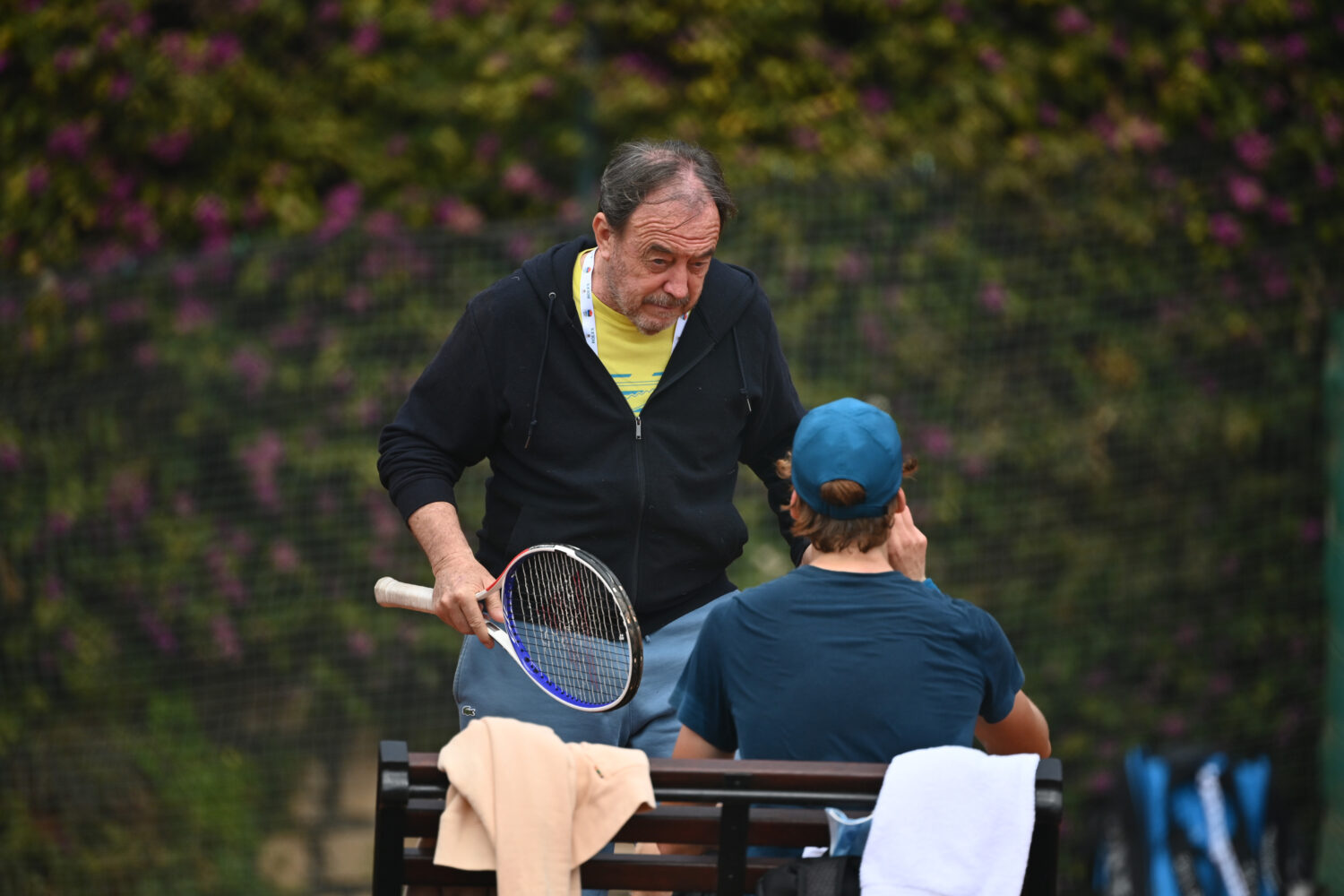Jannik Sinner: a star is born!

Commitment and humbleness: two values that Sinner is conveying to italians.
Reflecting on the inaugural ATP Finals in Turin in 2021, Matteo Berrettini emerged as the undisputed tennis luminary, capturing the attention of the Italian sporting scene. Turin, unaccustomed to hosting such a prestigious event, bore witness to quieter streets and less populated squares. Lingering fears and uncertainties from the ongoing pandemic still pervaded the atmosphere. Despite these challenges, tennis enthusiasts eagerly anticipated the chance to witness Berrettini and seven other world-class players grace the streets of Turin. Unfortunately, fate dealt a harsh blow when Berrettini succumbed to injury on the central court of Pala Alpitour during his opening match against Zverev. Tears, both from the player and the fans, marked a poignant moment. Jannik Sinner stepped in as a replacement, but at that juncture, a comparison seemed improbable. Sinner, though greeted with cautious enthusiasm, faced a subtle air of skepticism. Questions lingered about his Italian identity. The disappointment of losing Berrettini early in the tournament overshadowed the realization that Italians were witnessing the rise of a tennis legend.
The subsequent year proved to be a period of transformation and challenges for Sinner. Departing from his lifelong coach, Riccardo Piatti, he entrusted his career to Simone Vagnozzi, later joined by Daren Cahill. A year marked by physical setbacks, Sinner grappled with injuries that forced premature exits from several tournaments: against Cerundolo in the quarters of Miami, against Rublev in the round of 16 at Roland Garros and against Rune in the semifinals in Sofia, and even, to drop out of the Indian Wells Masters 1000. Despite participating in fewer events compared to the previous year, Sinner expressed satisfaction with improved performances in major tournaments: three Slam quarterfinals (Australian Open, Wimbledon, US Open) and the round of 16 at Roland-Garros. However, the Italian public remained cautiously reserved in their support, with no clear emotional attachment to the emerging tennis star.

Surprisingly, an article in the Gazzetta dello Sport revealed that Sinner concluded 2022 as the most searched Italian athlete on Google, indicating a growing eagerness and anticipation among the Italian populace. The year 2023 witnessed a meteoric rise for Jannik Sinner, exceeding all expectations. Finishing the year with 6490 points, Sinner achieved a feat not seen in Italian tennis since 2009, outperforming even illustrious names like Djokovic. These points symbolized 57 victories in 71 matches and culminated in five prestigious titles won: the ATP 250 tournament in Montpellier, the first Masters 1000 in Toronto, two ATP 500 tournaments (Beijing and Vienna) and a Davis Cup that Italy had been waiting for 47 years.
Yet, Sinne’s impact extended beyond statistics. Semifinals at Wimbledon, victories against top-ranked players, and a historic triumph over Djokovic during the Davis Cup semifinal solidified Sinner’s status as a tennis phenomenon. Despite securing the runner-up position in the ATP Finals, Sinner’s accomplishments painted a compelling narrative of success.
Transitioning from the realm of numbers to the emotional aftermath, the eruption of "Sinner Mania" became evident. Turin, typically unresponsive to sports idols, experienced an unprecedented frenzy. Crowds gathered outside the players' hotel, hundreds queued to witness Sinner’s Nike store appearance, and Piazza Castello transformed into a sea of spectators during the opening night. This fervor was unprecedented for an Italian tennis player in a city like Turin.

The emotional impact extended beyond sports bars, supermarkets, and restaurants, where people of all ages glued themselves to screens, captivated by the spectacle of Sinner’s matches. Conversations about Sinner transcended the usual boundaries, with even non-tennis enthusiasts inquiring about his prowess. Rai1, the first televesion channel in Italy, decided to alter its programming for the Sinner-Djokovic final, something that clearly highlighted the magnitude of the phenomenon.
In a nation where football traditionally dominates, Sinner’s ascent to the world number 4 position marked a seismic shift. His Italian identity, distinct characteristics, and humble demeanor endeared him to a diverse audience. The “Sinner Mania” extended beyond the realm of sports, featuring prominently in advertisements, charity auctions, and even chants at San Siro stadium. The prospect of a Netflix series chronicling The Life of Sinner seemed almost inevitable.
Ultimately, “Sinner Mania” provided a comforting reminder to Italy. At just 22 years old, Jannik Sinner embodied the values of commitment and humbleness, demonstrating that these principles were sufficient for achieving monumental success.